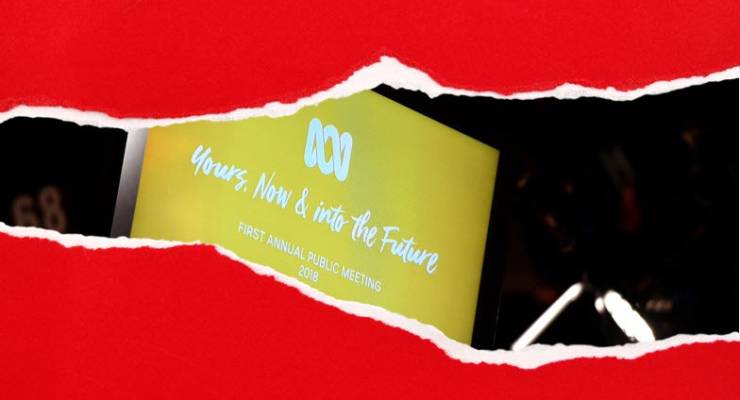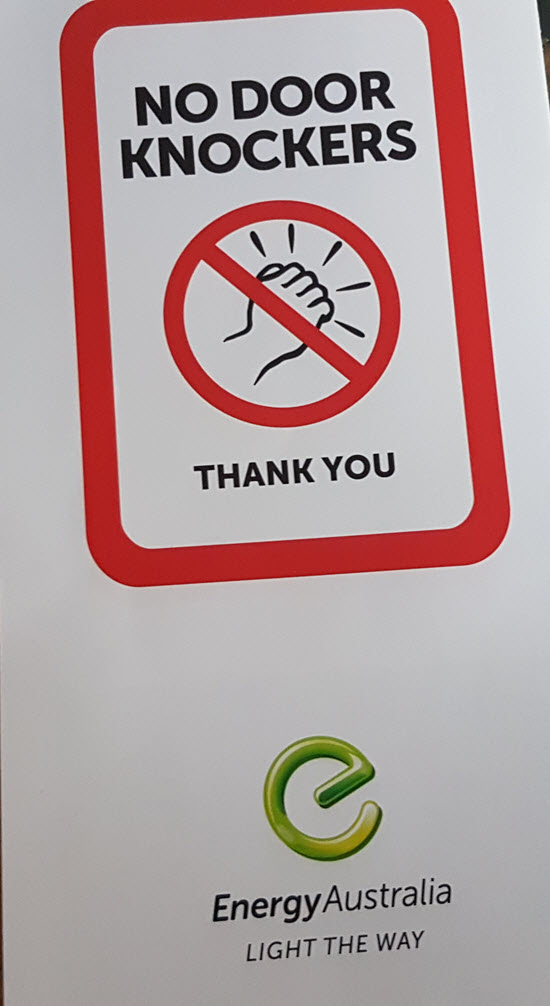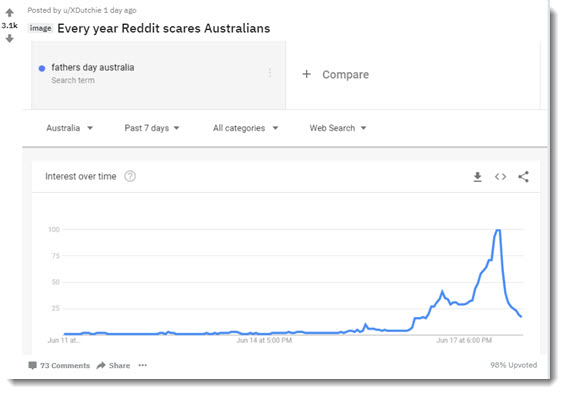
The family taking on the ABC; finding the right numbers on mortality; and Energy Australia’s cheeky door knocking campaign.
From the Crikey grapevine, the latest tips and rumours …
All in the family. Talk about virtue signalling. The Liberal Party’s Federal Council vote to privatise the ABC came from a motion from the Young Liberals and was supported this week in the Sydney Morning Herald by the Young Libs NSW president, Harry Stutchbury:
At last weekend’s Federal Council the Liberal Party resolved to privatise the ABC. The motion has no binding power and the federal Liberal Party has moved quickly to distance itself from the motion, ruling out any move to privatise the ABC. It surprised some commentators that this motion came from the Young Liberal movement, but it is the view of many young Australians that the ABC has crept well beyond its mission statement and well past its expiration date in a world of technology-driven media saturation.
He concluded that, “privatising the ABC would not mean that it would be shut down, no more than privatising the Commonwealth Bank, Qantas or Telstra did. It would mean an ABC that was forced to economise and focus on delivering what consumers wanted.”
And in the Australian Financial Review on Tuesday morning an editorial headlined “Lies about the ABC”:
Bill Shorten hopes that he can draw the Coalition into a fake controversy over the privatisation of the ABC where none exists. The public broadcaster is reliable bait for the Liberal Party base, so there was no surprise when a non-binding Young Liberal motion to sell the broadcaster passed the party’s federal council at the weekend — or at the ritual fulminating of the progressives that followed.
There is a common thread between the SMH opinion piece and the editorial in the AFR: Harry Stutchbury is son of the AFR’s editor-in-chief, Michael Stutchbury. One wonders if they compared notes.
Getting the numbers right. With the hideous murders of Eurydice Dixon still raw, a tipster informs us that a persistent but false statistical assertion is circulating again, which claims that the “leading cause of death of women 25-44 is murder committed by a man”.
As our tipster points out, “the most recent accessible Australian burden-of-disease mortality study (which includes all causes of death) shows that, of the 665 women who died age 25-34, lethal assault was sixth, with 19 deaths (suicide at 139, and poisoning at 66, top the list).” It’s seems likely the confusion has come about because domestic violence is listed as a leading contributor to preventable deaths among women of that age, as The Conversation‘s fact check unit established this year.
A few knocking about. On Monday we told you of a tipster who’d gotten a very cheeky “No Door Knockers” sticker with their last bill from Energy Australia, and asked if you’d gotten anything similar. Turns out, a lot of you had.

As one tipster put it, this certainly seems like “a cheap and nasty attempt discourage their competitors from door knocking to offer better energy rates”.
Did the Reserve Bank just mention The War? In his recent speech on wages growth, Reserve Bank Governor Phillip Lowe conjured every possible explanation for wage stagnation except the most obvious — the de-unionisation of the Australian work force. It’s become the unmentionable of the wages debate.
But in the minutes of the Bank’s June board meeting released yesterday, we find:
Wages had continued to grow at a low and stable rate. The wage price index had increased by 2.1 per cent over the year to the March quarter. Wages growth had remained faster in the household services industries, particularly in healthcare and education (where a majority of employees are paid under collective wage agreements), than in other sectors.
“Collective wage agreements” is central banker code for enterprise bargaining deals done by unions on behalf of their members with employers, such as various health departments and other government employers. Of course, health and education are where the strongest (and government-funded) jobs growth has been in recent quarters, but the RBA seems to have made a point of noting the industrial relations arrangements applying in the sector as well. Unions still aren’t mentioned, but maybe they’re a whisper in the wind.
An awkward call to dad. Don’t let the US date (and associated onslaught of content) fool you. As one Reddit user has pointed out via Google Trends data, you didn’t miss Father’s Day this week. Australians can look forward to the Bunnings ads ramping up before September 2 this year.

Heard anything that might interest Crikey? Send your tips to boss@crikey.com.au, use our guaranteed anonymous form or other ways to leak to us securely.







Why does everyone think the “No Door Knockers” stickers are new? They’ve been doing it for years. Mine has been up for so long that it has faded. I’m happy with it, but I wouldn’t mind a new non-faded one. If I want to change suppliers I’ll go online and research rather than has someone try to hard sell me on the doorstep.
Re Energy Australia’s ‘no door knockers’ campaign – a quick search shows that this is a long-running campaign for EA – for example these press releases on their website from 2013 and 2016. EA used to door knock but stopped in 2013 and were later fined by the ACCC over their past door knocking practices. Origin and AGL have also ceased door knocking.
For what it’s worth, I personally have a pretty strict rule about not buying from intrusive marketers – whether that be telemarketing or door knockers. They are intrusive practices ripe with scams and other criminality, and even when conducted by a legitimate salesperson still carry a strong likelihood of a very poor outcome for consumers. The frequent stories of oldies getting ripped off by dodgy door-to-door roof painters with massively inflated fees should come to mind. EA’s campaign should really be praised and encouraged, even if it does have an element of self-interest – it is still a pro-consumer campaign.
Gotta lurve Stutch the Younger’s “it is the view of many young Australians that the ABC has crept well beyond its mission statement” syllogistic solecism.
Churnalizm as she is gespoked today.
Lord Stutch and his Fin Rev – “Malice in Blunderland”.